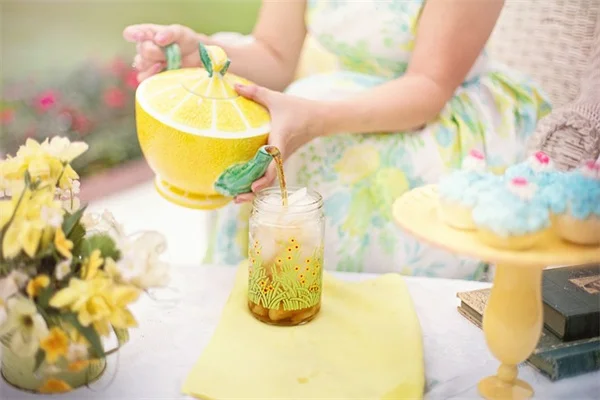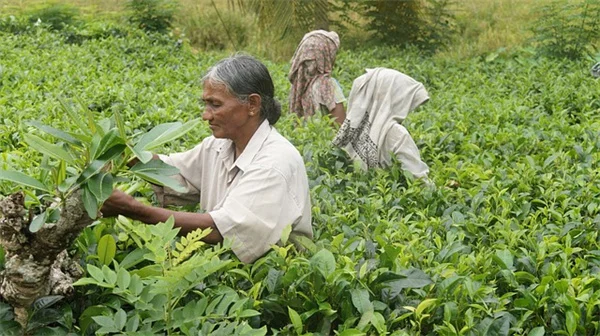Advertisement
Q: Did Quaker Oats recall products due to salmonella? A: Yes! Quaker Oats has recalled over 40 granola products because they might contain salmonella - that nasty bacteria that can give you food poisoning. We're talking about your favorite chewy bars, cereals, and snack mixes with best by dates through October 2024. The company announced this on December 15th, and you should check your pantry right now. Salmonella causes about 1.3 million illnesses annually in the U.S., so this is serious business. The good news? No confirmed cases yet from this recall, but better safe than sorry!
E.g. :Brisk Walking Benefits: 15 Minutes Daily Cuts Death Risk by 20%
- 1、Quaker Oats Recall: What You Need to Know Right Now
- 2、Salmonella: The Unwanted Guest in Your Food
- 3、Who's Most at Risk? (Spoiler: It Might Be You)
- 4、Treatment Options: What Works and What Doesn't
- 5、Prevention: Keeping Salmonella Out of Your Kitchen
- 6、The Bigger Picture: Why Food Safety Matters
- 7、Beyond the Recall: Exploring Food Safety in America
- 8、The Psychology Behind Our Food Choices
- 9、Alternative Snack Options Worth Trying
- 10、The Future of Food Safety Regulations
- 11、Turning a Recall Into a Learning Opportunity
- 12、FAQs
Quaker Oats Recall: What You Need to Know Right Now
The Big News About Your Favorite Snacks
Hey there! I just heard about this recall and thought you should know - Quaker Oats just pulled more than 40 products off shelves. We're talking about those delicious granola bars, cereals, and snack mixes you might have in your pantry right now. The company announced this on December 15th, and it's got people talking.
Now, here's the serious part: these products might be contaminated with salmonella. That's a nasty bacteria that can make you really sick. But don't panic - I'll walk you through everything you need to know to stay safe. The affected items were sold everywhere - all 50 states plus Puerto Rico, Guam, and Saipan. And get this - some products have "best by" dates all the way through October 2024!
Is Your Pantry Affected?
You're probably wondering, "How do I know if I have any of these recalled products?" Great question! The FDA has a complete list you can check. I'll tell you what to look for:
| Product Type | Examples | What to Do |
|---|---|---|
| Chewy Granola Bars | Chocolate Chip, Oatmeal Raisin | Throw away immediately |
| Granola Cereals | Oats & Honey, Maple & Brown Sugar | Don't eat - return or discard |
| Snack Mixes | Trail Mix varieties | Check the FDA list |
If you find any of these in your kitchen, don't take chances - toss them out right away. And hey, Quaker's offering refunds! You can call them at 1-800-492-9322 or visit their recall website. The good news? No confirmed illnesses yet from this recall.
Salmonella: The Unwanted Guest in Your Food
 Photos provided by pixabay
Photos provided by pixabay
What Exactly Is Salmonella?
Let me break it down for you. Salmonella is like that party crasher who shows up uninvited and ruins everything. It's a bacteria that can sneak into food in several ways:
• Maybe someone handling the food carried it (eww!)
• Could be cross-contamination from other products
• Sometimes it comes from, well... animal poop that wasn't properly cleaned off
Dr. Amesh Adalja, an infectious disease expert, explains that while our food system is generally safe, these things can happen. The important thing is knowing what to do about it.
How Bad Can It Really Get?
Here's the deal - for most healthy people, salmonella causes what we might call a "really bad stomach bug." We're talking diarrhea (sometimes bloody), fever, nausea, vomiting, and stomach cramps. Symptoms usually show up 6 hours to 6 days after eating contaminated food and last about a week.
But wait - did you know that salmonella causes about 1.3 million illnesses in the U.S. each year? That's according to the CDC. Most people recover at home, but about 26,500 end up in the hospital, and sadly, 420 people die annually from it.
Who's Most at Risk? (Spoiler: It Might Be You)
The Vulnerable Groups You Should Know About
While salmonella can make anyone miserable, some folks are more likely to get seriously sick:
• Little kids - their immune systems are still developing
• Older adults - immune systems weaken with age
• People with weakened immunity - like those with HIV or cancer patients
For these groups, salmonella can spread beyond the gut into the bloodstream, which is way more dangerous. That's why we need to be extra careful with food safety around them.
 Photos provided by pixabay
Photos provided by pixabay
What Exactly Is Salmonella?
Here's a quick guide to when you should definitely seek medical help:
- Fever over 102°F that won't quit
- Diarrhea lasting more than 3 days without improvement
- Blood in your stool (yeah, that's always a red flag)
- Can't stop vomiting
- Signs of dehydration (dizziness, dry mouth, not peeing much)
Remember, it's always better to be safe than sorry when it comes to foodborne illnesses!
Treatment Options: What Works and What Doesn't
The Home Care Game Plan
For most of us healthy folks, salmonella means a few miserable days on the couch. The treatment? Basically, ride it out while staying hydrated. Drink plenty of fluids - water, broth, electrolyte solutions. Eat bland foods when you can keep them down. And get plenty of rest!
But here's something interesting - doctors actually don't recommend over-the-counter diarrhea meds like Imodium for salmonella. Why? Because your body is trying to flush out the bacteria, and stopping that process might not help.
When Antibiotics Enter the Picture
Now, here's where it gets tricky. While antibiotics can kill salmonella, doctors don't usually prescribe them for healthy adults. Why? Two big reasons:
1. They can also wipe out the good bacteria that help you recover
2. Many salmonella strains are antibiotic-resistant these days
But for high-risk groups - the very young, elderly, or immunocompromised - antibiotics might be necessary. That's why it's so important for these folks to see a doctor if they suspect salmonella poisoning.
Prevention: Keeping Salmonella Out of Your Kitchen
 Photos provided by pixabay
Photos provided by pixabay
What Exactly Is Salmonella?
You might be thinking, "How can I avoid this mess in the future?" Great question! Here are some pro tips:
- Wash your hands like you're prepping for surgery - especially after handling raw meat or eggs
- Cook foods thoroughly - salmonella can't survive proper cooking temperatures
- Avoid cross-contamination - use separate cutting boards for meats and veggies
- Wash fruits and veggies - even if you're going to peel them
The Recall Response Plan
When recalls like this Quaker Oats situation happen, here's what to do:
1. Check your pantry against the recall list (no cheating!)
2. When in doubt, throw it out - better safe than sorry
3. Clean your pantry shelves where recalled items were stored
4. Consider reporting any illness to help track outbreaks
And remember - food recalls are actually a good thing! They show the system is working to protect us. Companies and regulators are being proactive about potential risks.
The Bigger Picture: Why Food Safety Matters
How Common Are These Recalls?
You might be surprised to learn that food recalls happen more often than you'd think. Just in 2023, there were over 100 major food recalls in the U.S. alone. Most are for potential contamination like this one.
The silver lining? Our food safety systems are constantly improving. Companies are quicker to act when potential issues are found, and agencies like the FDA have better tools to track problems.
Your Role in Food Safety
Here's the thing - food safety isn't just the government's or companies' responsibility. We all play a part! By:
- Paying attention to recalls like this one
- Practicing good food safety at home
- Reporting suspected foodborne illnesses
- Staying informed about food safety issues
We create a safer food system for everyone. So while this Quaker Oats recall might be inconvenient, it's also a good reminder to stay vigilant about what we eat.
Stay safe out there, and maybe give your pantry a quick check when you get a chance!
Beyond the Recall: Exploring Food Safety in America
The Hidden Costs of Food Recalls
You might not realize this, but food recalls like the Quaker Oats situation cost companies millions each year. Just last year, the food industry spent over $100 million on recall-related expenses. But here's what's really interesting - those costs get passed on to consumers through higher prices.
Think about it this way: when a company has to destroy thousands of products, repackage new ones, and deal with lawsuits, they're not just eating those costs (pun intended). We all end up paying a little more at the grocery store. But you know what? I'd rather pay a few extra cents than risk getting sick from contaminated food.
How Technology Is Changing Food Safety
Let me tell you about some cool innovations happening right now in food tracking. Companies are starting to use blockchain technology to track food from farm to table. Imagine being able to scan a QR code on your granola bar and see exactly where every ingredient came from!
Some grocery stores are already testing smart shelves that can automatically pull recalled products. How awesome is that? No more relying on customers to check recall notices - the store does it for you. This tech isn't everywhere yet, but I bet we'll see more of it in the next few years.
The Psychology Behind Our Food Choices
Why We Ignore Food Recalls (And Why We Shouldn't)
Here's something wild - studies show that only about 60% of people actually check their homes for recalled products. Why? It's called "optimism bias" - we all think "it won't happen to me." But let's be real, that's like not wearing a seatbelt because you're a good driver.
I'll admit - I used to be guilty of this too. Then my cousin got sick from some recalled peanut butter, and let me tell you, watching someone puke for three days straight really changes your perspective. Now I check every recall notice like my life depends on it (because, well, it kinda does).
The Brand Loyalty Trap
Ever notice how we keep buying from brands we love even after recalls? That's brand loyalty at work. But here's a question: Should we be more willing to switch when companies mess up?
The answer isn't simple. On one hand, mistakes happen to everyone. On the other, repeated recalls might signal bigger problems. I've started keeping a mental "three strikes" rule - if a brand has multiple major recalls in a short time, I'll try alternatives for a while.
Alternative Snack Options Worth Trying
Homemade Granola Bar Recipes
If you're nervous about store-bought snacks right now, why not try making your own? I've been experimenting with homemade granola bars, and let me tell you - they're easier than you think! Here's my go-to recipe:
• 2 cups rolled oats
• 1/2 cup honey
• 1/2 cup peanut butter
• 1/4 cup chocolate chips (because life's too short)
Mix, press into a pan, chill, and cut!
The best part? You control every ingredient. No mystery additives, no recall worries. Plus, they taste way better than anything from a box. My kids actually prefer these now - though they do disappear faster than I can make them!
Store-Brand Alternatives That Rock
Not into baking? No problem! Here are some great store-bought alternatives that haven't had recall issues:
| Brand | Product | Why It's Great |
|---|---|---|
| Kind | Nut Bars | Simple ingredients, tasty |
| Larabar | Fruit & Nut Bars | Only 2-5 ingredients |
| Nature's Bakery | Fig Bars | Whole grain, no artificial stuff |
I've tried them all, and while they're different from Quaker products, they're delicious in their own way. My personal favorite? The Kind Dark Chocolate Nuts & Sea Salt bars. So good they should probably come with a warning label!
The Future of Food Safety Regulations
What Needs to Change in Our Food System
After seeing so many recalls lately, I've been wondering: Are our food safety regulations strong enough? The answer might surprise you.
While the FDA does a decent job, there are gaps. For example, did you know that food facilities only get inspected about once every 3-5 years on average? That seems crazy when you consider how much can change in that time. Some experts are pushing for more frequent inspections, especially at high-risk facilities.
How Consumers Can Push for Change
Here's the good news - we're not powerless! Here's how you can help improve food safety:
1. Report foodborne illnesses (even if you don't go to the doctor)
2. Support companies with strong safety records
3. Contact your representatives about food safety laws
4. Share recall info with friends and family
Remember when everyone freaked out about pink slime in beef? Public pressure actually forced changes in the industry. That's the power we have as consumers when we speak up together.
Turning a Recall Into a Learning Opportunity
What This Teaches Us About Preparedness
Here's a thought - maybe food recalls are nature's way of reminding us to diversify our pantries. I used to buy the same snacks every week, but now I mix it up. If one product gets recalled, I've got alternatives ready to go.
It's also made me more aware of expiration dates and storage conditions. Did you know that storing granola bars in a warm pantry can actually increase the risk of bacterial growth? I didn't until this recall made me research proper food storage.
The Silver Lining in Every Recall
At the end of the day, recalls like this Quaker Oats situation show that the system works. Companies are catching problems before people get sick. Regulators are monitoring food safety. And we're all becoming more informed consumers.
So while it's annoying to throw out your favorite snacks, try to see it as a positive. We're all getting better at food safety together. And who knows - maybe you'll discover a new favorite snack in the process!
E.g. :Quaker Recalls Granola Bars and Granola Cereals Due to Possible ...
FAQs
Q: What Quaker Oats products are included in the recall?
A: The recall includes more than 40 different Quaker products that you might have in your kitchen right now. We're talking about popular items like Chewy Granola Bars (Chocolate Chip, Oatmeal Raisin flavors), Granola Cereals (Oats & Honey, Maple & Brown Sugar), and various snack mixes. These were sold nationwide - all 50 states plus Puerto Rico, Guam, and Saipan. The full list is available on the FDA's website, but if you have any Quaker granola products with best-by dates through October 2024, you should check immediately. When in doubt, throw it out!
Q: What are the symptoms of salmonella poisoning?
A: Salmonella hits you with some pretty unpleasant symptoms, usually within 6 hours to 6 days after eating contaminated food. You might experience diarrhea (sometimes bloody), fever over 100.4°F, nausea, vomiting, and abdominal cramps that feel like the worst stomachache ever. For most healthy people, these symptoms last about 4-7 days. But here's what really worries doctors: in some cases, especially with young kids or older adults, the bacteria can spread beyond your gut into your bloodstream, which becomes much more dangerous. That's why it's crucial to know when to seek medical help.
Q: Who is most at risk from salmonella infection?
A: While salmonella can make anyone miserable, certain groups face higher risks of severe illness. We're especially concerned about children under 5 (their immune systems are still developing), adults over 65 (immunity weakens with age), and people with weakened immune systems (like those with HIV, cancer patients, or anyone on immunosuppressant drugs). Pregnant women should also be extra careful. For these vulnerable groups, what might be an unpleasant week for a healthy adult could turn into a life-threatening situation requiring hospitalization. That's why recalls like this Quaker Oats situation demand our attention.
Q: How is salmonella treated?
A: Here's the treatment plan most doctors recommend: For healthy adults, the best approach is usually to stay hydrated and ride it out. Drink plenty of fluids - we're talking water, broth, or electrolyte solutions like Pedialyte. Eat bland foods when you can keep them down (think toast, rice, bananas). Surprisingly, doctors often advise against anti-diarrheal meds like Imodium because your body needs to flush out the bacteria. But if you're in a high-risk group or develop severe symptoms (fever over 102°F, bloody stools, dehydration signs), you'll need medical attention - possibly antibiotics. Just remember: many salmonella strains are antibiotic-resistant now, so only take them if prescribed!
Q: How can I prevent salmonella infection?
A: Prevention starts with some basic but crucial habits: Always wash your hands thoroughly before handling food (sing "Happy Birthday" twice while scrubbing!). Cook foods to proper temperatures - salmonella dies at 165°F. Use separate cutting boards for raw meats and produce. Wash fruits and veggies, even if you'll peel them. For this specific recall, check your pantry against the FDA's list and toss any questionable products. Clean shelves where recalled items were stored. And remember - food recalls are actually a sign the safety system is working, so stay informed about them. Your best defense is a combination of awareness and good kitchen hygiene!







